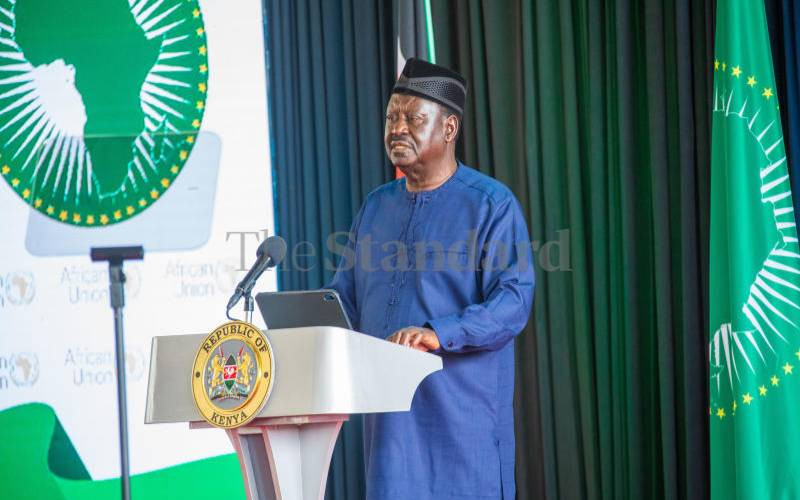
The heavy lifting for Raila Odinga begins after the razzmatazz over his campaign for the African Union Commission (AUC) chairmanship ended with the endorsement from regional leaders an event that was hosted by President William Ruto.
For Raila to clinch the coveted position he needs 2/3 of the 55 countries that will vote for Moussa Faki's successor but geo politics language and religion by the member states will play a key role in who wins next year's elections. However, 6 members have been suspended because of either war or hostile takeovers in government. These are: Sudan, Gabon, Benin, Burkina Faso, Niger and Guinea. These means Raila needs at least 33 votes to succeed Moussa Faki as the CEO.